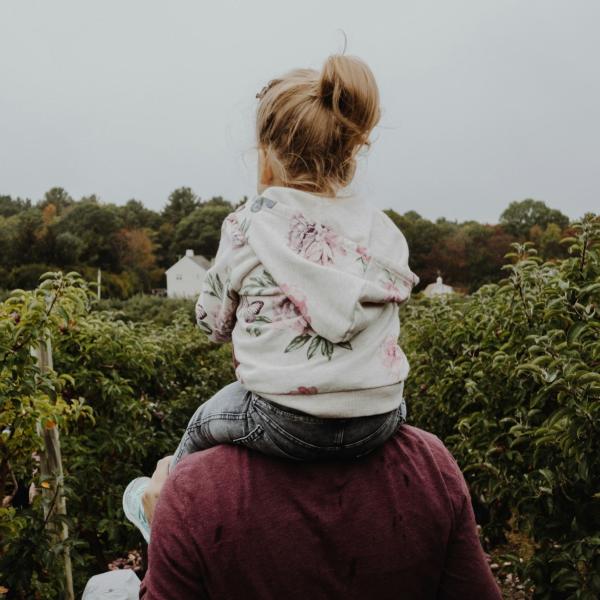Why are we rethinking orphanages?
Krish Kandiah shares about an upcoming global project
When I first felt called to become a foster carer, I could never have imagined the incredible path that journey would lead me on. Not only have we looked after thirty children in our home and had three children added as permanent members of our family, but Home for Good has launched and grown beyond all my expectations. Now, wherever I go, I meet advocates and supporters of Home for Good, and dedicated adopters and foster carers who delight to tell me about the children whose lives are being changed.
Whether we are travelling the length and breadth of the UK to inspire churches to get involved, or working hard in Parliament to change the systems and structures that can make life difficult for children, or working closely with local authorities and fostering or adoption agencies, it is truly inspiring to meet so many people who share our passion and our call to make sure every child in the UK care system has a family where they can thrive.
So, when I received a call from a consortium of secular international charities asking us to persuade the church in the UK that families were good for children, I was intrigued.
UNICEF, Save the Children, Hope and Homes and Lumos (J.K. Rowling’s charity) would like us to extend our commitment to finding families for vulnerable children to the worldwide crisis of children separated from their families. Of the 8 million children living in orphanages around the world (this is a conservative figure as many orphanages are not officially registered) we know that the majority have at least one living parent, and under the right conditions could go home. Where that isn’t possible, most of them could be cared for by wider family, or at least be welcomed into local families through fostering and adoption.
This is an incredible opportunity. Christians are being recognised as those who respond to global challenges, who are actively moved by their compassion for the world’s vulnerable children, and who are motivated by God’s mandate to care for the ‘fatherless’. From Jesus’ counter-cultural welcome to children, to the early church’s challenging of the pagan practice of infanticide, to Lord Shaftesbury and the early evangelicals’ concern for the exploitation of children working in coal mines, to the Christian founding of the first schools for ordinary members of the public (the so-called ‘ragged schools’ in the 1850s that paved the way for universal public education), Christians have historically been at the forefront of the care, protection and championing of vulnerable children.
Until now, many people have seen Christian orphanage support in the same historic movement of compassionate care for the most vulnerable. Many orphanages have been founded by cross-cultural Christian missionaries and supported by international Christian donors, charities and churches. According to a recent study conducted in Australia, an impressive 51 per cent of church attendees in the country – across fourteen denominations – had donated to overseas orphanages and, of the many Christians who had volunteered overseas, 14% had volunteered in overseas orphanages.’
Yet in Australia, as in the UK, institutions and children’s homes are seen as a last resort for the children born in those countries. Why do we aspire less for the children of Africa, Asia or South America than we aspire for our own children or the children of our nation? Is there something about the Biblical commitment to family that we need to rediscover when it comes to the global challenge?
From the opening chapters of scripture where committed intimate human relationships are created to prevent us from being alone, to the great Bible narratives that span the complexities of families through generations, to our final adoption into God’s global family – there is a mandate for Christians not only to promote family, and to include people who have no family into our families, but to advocate for this as part of our global mission.
According to Psalm 68 we are told that ‘God sets the lonely in families’. We see this illustrated in the stories of Pharaoh’s daughter rescuing the Hebrew child Moses; Mordecai raising his niece Esther in a foreign land; Naomi and Ruth becoming family across the ethnic divide and David adopting the disabled son of his best friend after war took his life. Setting the lonely in families can be our mission, not just mirrored in our own homes, but facilitated even in the wake of genocide, poverty and war all around the world.
And so in that request from a group of secular charities I felt the call of God. The Church should not only live out its theology in the way we foster and adopt in the UK but also in the way we support vulnerable children overseas. For the vast majority of those 8 million plus children the best thing for them is not that they remain institutionalised in orphanages but that they reunite with their family through local facilitation or regain family through local fostering and adoption.
There are exciting ways we can be part of this movement, and see children who are unnecessarily separated from their families given the chance of a homecoming - access to a permanent and loving home for good.
Image provided by Hope and Homes for Children - used with permission
You might also be interested in
I would like to find out what is
going on in my area
Join our mailing list for the latest Home for Good news and ways to get involved.
Together we can find a home for every child who needs one.
£25 per month could help us create and collate inspiring articles and blogs that encourage and inform the families and communities who care for vulnerable children











 Thank you, you're giving:
Thank you, you're giving: